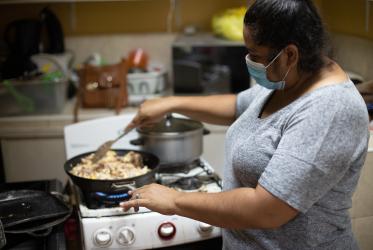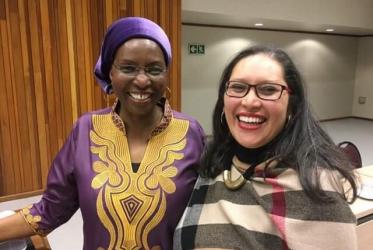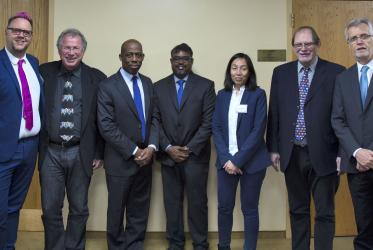Displaying 1 - 20 of 55
WCC Eco-School begins in Crete
15 November 2023
Churches should use their voice on climate change
26 February 2020
WCC remembers lost colleagues
24 May 2019
Pan African Women of Faith issue fervent Call to Action
20 November 2018
Worrying food shortages compel faith action
19 October 2018
New economic architecture focus of New York meeting
22 April 2018
GETI students plant trees, in service for greener future
07 March 2018
Responsible agriculture investments theme of WCC session
16 October 2017
Emily Welty: tide of hope for a world free from nuclear weapons
19 September 2017













